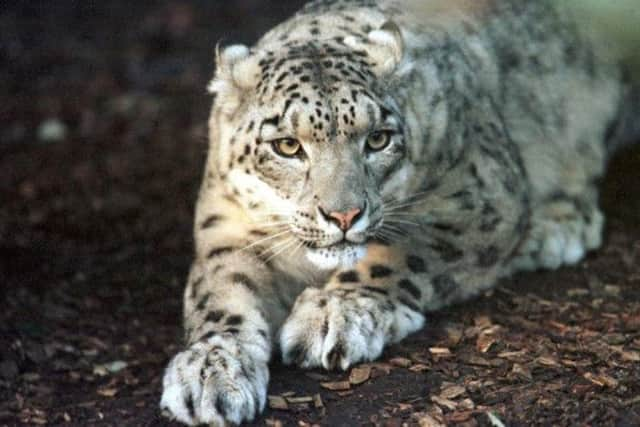Edinburgh vets save sight of rare snow leopard with conjunctival graft operation
A team of veterinary ophthalmologists from the Royal (Dick) School of Veterinary Studies successfully saved the sight of a rare snow leopard at Cumbria Zoo by successfully treating a corneal ulcer.
The veterinary team treated the snow leopard, named Wolfgang – Wolfie – after keepers at the zoo noticed that one of their snow leopard’s eyes had become red and inflamed with the team placing the rare animal under anaesthetic.
Advertisement
Hide AdAdvertisement
Hide AdParts of his soft tissues of the big cat’s eyelid and part of his conjunctiva were inflamed and swollen – with the animal at risk of losing his sight after a large 10mm full thickness ulcer in the centre of his eye was discovered.


Vets feared that the ulcer was close to rupturing and ruled that urgent work was required in order to prevent the loss of sight.
Given the severity of the ulcer, surgical intervention was carried out with vets from the International Zoo Veterinary Group performing a “grid keratotomy” procedure.
This proved to be unsuccessful however, and week after the procedure, the snow leopard’s eye was still showing little sign of improvement.
The veterinary team contacted Royal Dick veterinary ophthalmologist Claudia Hartley in order to further treat the animal.
Dr Hartley and Kris Houston, a ophthalmology resident at the Hospital for Small Animals at the Royal Dick, examined Wolfie under anaesthetic before conducting a conjunctival graft.
Within days of the procedure, Wolfgang’s eye was much improved and, under the continued supervision and care of the veterinary team at Cumbria Zoo Company, he made a full recovery.
Dr Hartley said: “Wolfie had a particularly nasty full thickness corneal ulcer which, if left untreated, would have undoubtedly led to him losing his sight and even his eye.
Advertisement
Hide AdAdvertisement
Hide Ad“I was delighted to work in partnership with the excellent veterinary team at Cumbria Zoo Company and the International Zoo Veterinary Group, and am so pleased that Wolfie has made a full recovery.”
The Royal (Dick) School of Veterinary Studies, is the veterinary school of the University of Edinburgh in Scotland and part of the College of Medicine and Veterinary Medicine.
Comments
Want to join the conversation? Please or to comment on this article.